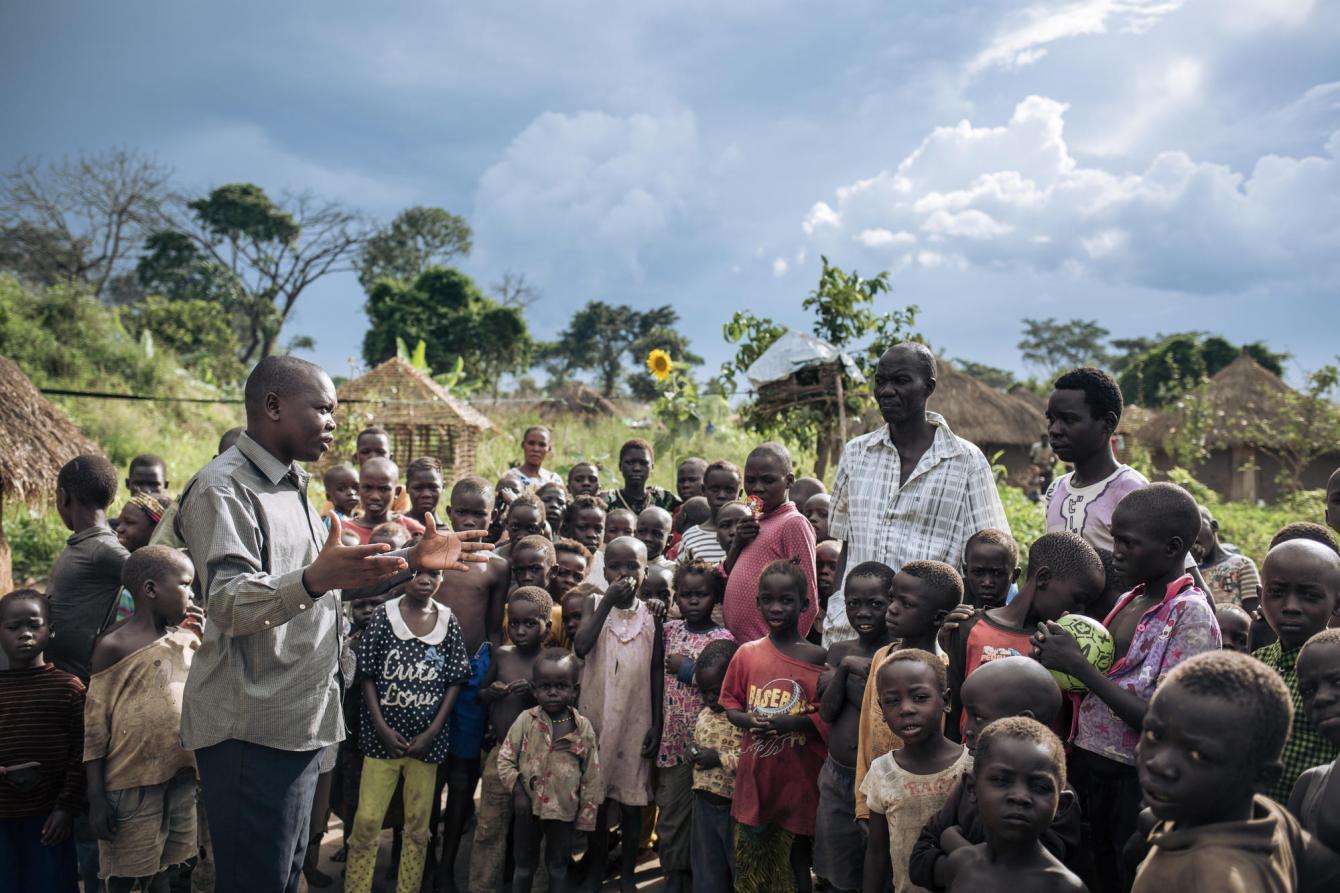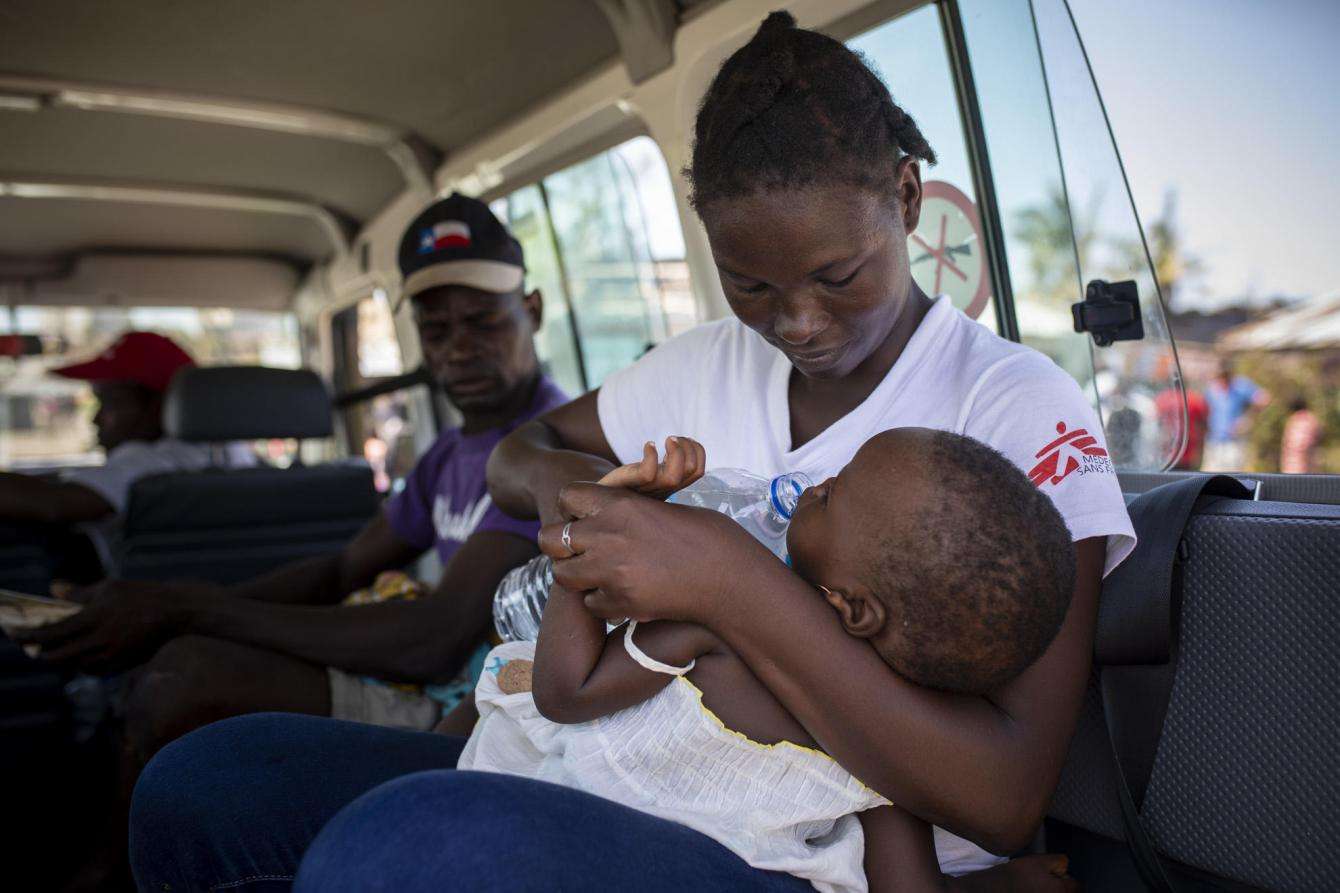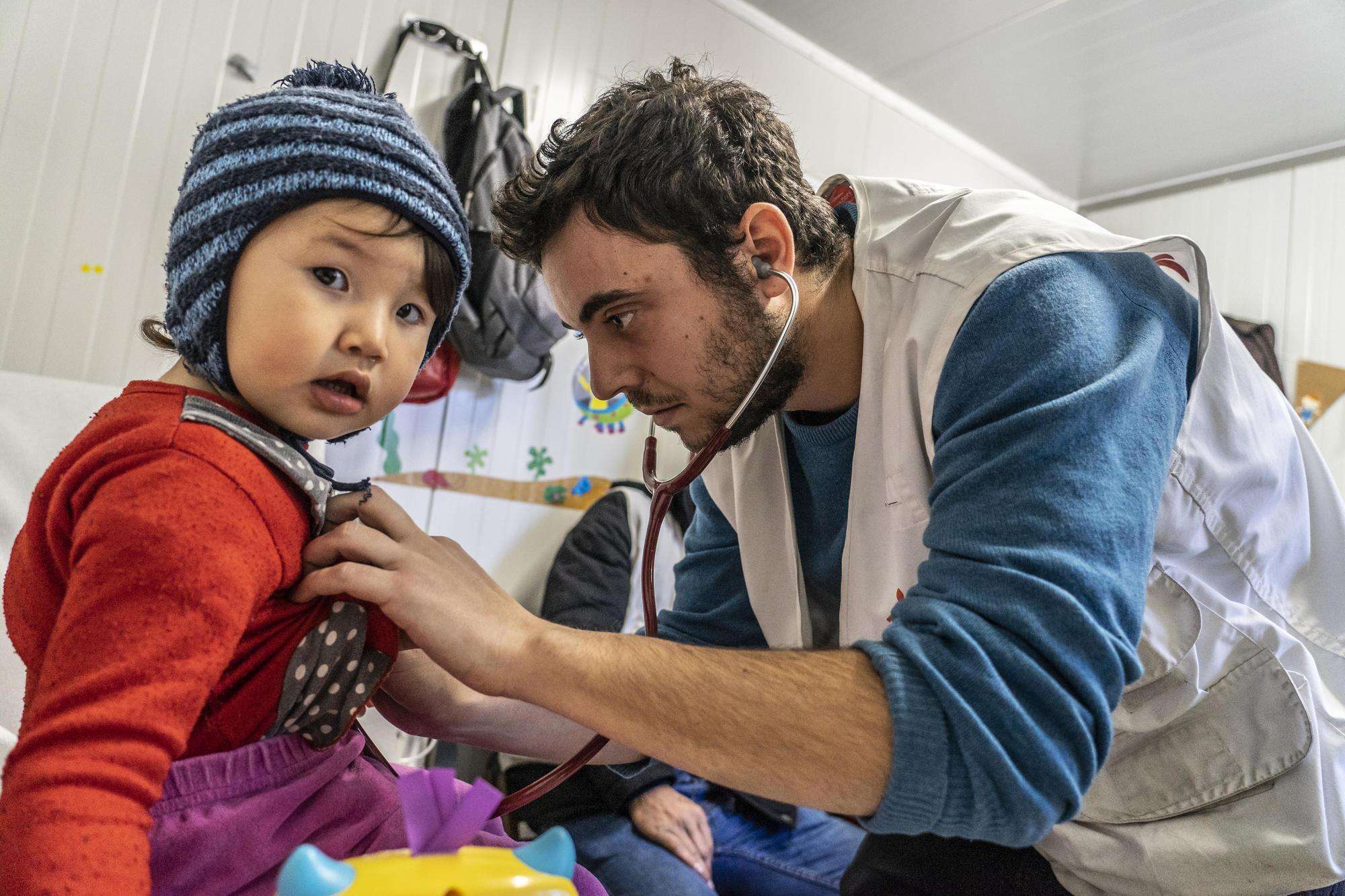Visit the MSF-USA 2019 Annual Report landing page >>
Read MSF's 2019 International Activity Report >>
Dear Friends,
Looking back on the events of last year, it is astonishing how much we were able to achieve against terrible odds—and sobering to realize how much of this urgent work continues, almost completely overshadowed by the world’s preoccupation with the COVID-19 pandemic. Doctors Without Borders/Médecins Sans Frontières (MSF) teams carried out lifesaving medical activities in 72 countries last year. This year, we have undertaken a massive effort to keep these essential services running even as we adapt to respond to the extraordinary threats posed by the new coronavirus.
In Democratic Republic of Congo (DRC), where we have our largest medical operations, our teams carried out 1,687,910 outpatient consultations. While international attention was focused mainly on the Ebola outbreak, we sounded the alarm about other pressing health needs—including the world’s largest measles epidemic. More than 7,000 people, mostly young children, have died of measles. That’s more than three times the number of people killed by Ebola, despite the availability of a safe and effective measles vaccine. MSF teams vaccinated more than 679,500 children against measles and treated some 48,000 patients in our facilities to help bring the epidemic under control. Well into 2020, we were still fighting measles here, as well as malaria, cholera, HIV/AIDS, Ebola, and COVID-19.

While we anxiously await the development of a potential vaccine for the coronavirus, it is important to remember that an estimated 1.5 million people die every year from vaccine-preventable diseases such as measles, pneumonia, and influenza. It is not enough to have the tools to fight disease, although more and better tools are certainly needed. We must ensure that essential medical products are affordable and available for all.
Last year marked the 20th anniversary of MSF’s Access Campaign, launched using funds from our receipt of the Nobel Peace Prize in 1999. The campaign advocates for greater access to effective drugs, tests, and vaccines suited to our patients and adapted to the conditions where they live. Last October MSF launched a global campaign calling on Johnson & Johnson to drop the price of a lifesaving drug to treat tuberculosis (TB), the world’s leading infectious disease killer. This July the company announced it would cut the price of the drug, bedaquiline, down to $1.50 per day for certain countries. MSF continues to press Johnson & Johnson to offer the lower price to all countries with a high burden of drug-resistant TB, and we are calling on governments to scale up the use of this breakthrough treatment.
MSF is the largest non-governmental provider of TB treatment worldwide, providing care to people in a wide variety of settings—from war zones to densely crowded cities to remote rural areas. In 2019, we started 16,800 people on first-line TB treatment and another 2,000 on treatment for drug-resistant forms of the disease. We are extremely concerned about the impact of COVID-19 on people living with TB, who are at heightened risk of this new respiratory disease as their lungs are often already damaged and their immune systems are weak.

Many of last year’s biggest emergencies now seem like distant memories, but they still bear significant lessons for us going forward. In March, we mounted a massive response to Cyclone Idai, which devastated areas along the coast of southeastern Africa. Mozambique was especially hard hit, with some 1.85 million people affected by the disaster. MSF sent emergency teams to support the response. We worked with the Ministry of Health to beat back a cholera outbreak, managing the treatment of more than half of all cholera patients and helping vaccinate 900,000 people against the disease. We set up two water treatment plants, rehabilitated 18 health centers, and distributed essential relief items. We treated thousands of people for malnutrition and malaria. And then Cyclone Kenneth hit the country. It was the first time in recorded history that two cyclones hit Mozambique in a single season. The catastrophic impact of these cyclones was compounded by months of drought later in the year. Together they deepened the country’s food insecurity and malnutrition crisis. Experts warned that these back-to-back disasters should be a wake-up call to prepare for more extreme weather events linked to climate change.
MSF is increasingly concerned about the impact of climate change and environmental degradation on dramatically increasing humanitarian needs. As people further disrupt fragile ecosystems, some scientists say we can expect to see more zoonotic diseases that jump from animals to humans, like COVID-19. The poor and marginalized communities we serve already suffer the worst consequences of climate change, and are at greatest risk of future harm. As noted in the foreword of MSF's International Activity Report, we are committed to act with urgency to confront these realities, adapt our operations accordingly, and address the environmental impacts of our own aid efforts.
Over the past year, we have continued to care for the large numbers of people uprooted by conflict, persecution, and extreme poverty. There are now more than 79.5 million forcibly displaced people around the world—more than at any time in modern history. That’s an unimaginably huge number when you think about the scale of human suffering. But it’s also only about 1 percent of the world’s total population—meaning that 99 percent of us can probably afford to be more generous and more compassionate. The Americas has become the region with the largest number of asylum claims, due to the spiraling crisis in Venezuela and increased violence and insecurity in parts of Central America and Mexico. The United States, however, has effectively dismantled the system designed to protect refugees and asylum seekers, including victims of gang violence, sexual violence, and gender-based violence. MSF has treated thousands of refugees and asylum seekers along the migration routes north from Central America to Mexico, and we will keep advocating for their health and safety.
We invite you to discover much more in this report about our activities across 72 countries. We are so grateful to all our donors for supporting this lifesaving work, and to our 45,000 staff members who make it happen every day.
Sincerely,
Africa Stewart, MD, President, MSF-USA Board of Directors
Avril Benoît, Executive Director, MSF-USA




